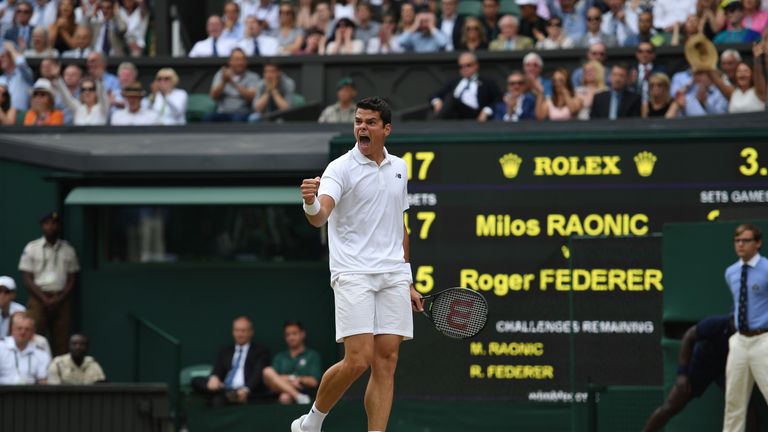 Barack Obama. Sean Gallup/Getty Images
Barack Obama. Sean Gallup/Getty Images
President Obama issued new sanctions against Russia on Thursday, calling Russia's "malicious cyber-related activities" a "national emergency" aimed at undermining "democratic processes."
He also ordered that 35 Russian diplomats be ejected from the United States and closed Russian compounds in New York and Maryland in response to "Russian harrassment of American diplomats" in Moscow.
The diplomats will be given 72 hours to leave the US, according to Reuters.
"All Americans should be alarmed by Russia's actions," Obama said in a statement, noting that Russia's "data theft and disclosure activities could only have been directed by the highest levels of the Russian government."
Moreover, Obama said, "our diplomats have an unacceptable level of harrassment in Moscow by Russian security services and police over the last year. Such activities have consequences."
Obama altered an executive order he issued in April 2015 that would allow the US to retaliate against cyberattacks to include attacks designed to "interfere with or undermine election processes or institutions."
The updated executive order authorized Obama to sanction nine entities and individuals linked to Russia’s largest foreign intelligence agency, GRU, and Russia’s primary security agency, FSB. Four individual, high-ranking officers of the GRU were also sanctioned, as were three companies provided material support to the GRU's cyber operations.
Cybersecurity firm CrowdStrike linked the hacks on the Democratic National Committee (DNC) back to the GRU earlier this month.
The Treasury sanctioned two more Russian individuals "for using cyber-enabled means to cause misappropriation of funds and personal identifying information."
Obama also ordered that the Russian compounds, used "for intelligence-related purposes," be closed, and that technical information on Russian civilian and military intelligence cyber activity be declassified to help the US "identify, detect, and disrupt Russia's global campaign of malicious cyber activities."
 Russian President Vladimir Putin, left, speaks with U.S. President Barack Obama in Hangzhou in eastern China's Zhejiang province, Monday, Sept. 5, 2016. Alexei Druzhinin/Sputnik, Kremlin Pool Photo via AP
Russian President Vladimir Putin, left, speaks with U.S. President Barack Obama in Hangzhou in eastern China's Zhejiang province, Monday, Sept. 5, 2016. Alexei Druzhinin/Sputnik, Kremlin Pool Photo via AP
The FBI and the Department of Homeland Security released a joint report on the Russian cyber campaign, codenamed "Grizzly Steppe," on Thursday that coincided with Obama's executive order.
The report concluded that Russian civilian and military intelligence Services (RIS) "participated in the intrusion into a US political party" as part of an "ongoing campaign of cyber-enabled operations directed at the US government and its citizens" — including one launched in November, days after the election.
The head of Russia's Federation Council Committee on Foreign Relations, Konstantin Kosachev, told Russia's Interfax news agency after the sanctions were announced that the "harsh and destructive steps" by the Obama administration were "not just an agony of the 'lame ducks' but of the 'political corpses.'"
Russian Foreign Ministry spokesperson Maria Zakharova said in a statement published on Wednesday, as the threat of sanctions loomed, that "we are tired of lies about Russian hackers that continue to be spread in the United States from the very top."
"The truth about the White House-orchestrated provocation is bound to surface sooner or later," Zakharova added. "We can only add that if Washington takes new hostile steps, it will receive an answer."
Russian president Vladimir Putin said that Russia would consider "retaliatory measures," the AP reported.
Russia's hacking campaign
Obama's executive order comes just over two months after the US intelligence community first accused the Russian government of orchestrating a series of cyberattacks on US citizens and political organizations, stating that "only Russia's senior-most officials could have authorized these activities."
"The US Intelligence Community (USIC) is confident that the Russian Government directed the recent compromises of e-mails from US persons and institutions, including from US political organizations," the Department of Homeland Security and the Office of the Director of National Intelligence said in a statement at the time.
The CIA, meanwhile, waited until after the election to put forward an independent assessment of Russian meddling, the content of which was leaked to the press earlier this month via high-level officials briefed on the intelligence.
 U.S. President-elect Donald Trump delivered brief remarks to reporters at the Mar-a-lago Club in Palm Beach, Florida, U.S. December 28, 2016. REUTERS/Jonathan Ernst
U.S. President-elect Donald Trump delivered brief remarks to reporters at the Mar-a-lago Club in Palm Beach, Florida, U.S. December 28, 2016. REUTERS/Jonathan Ernst
In it, the CIA said the Russians had been working toward a specific goal when they hacked into the inboxes of Democratic National Committee staffers and Hillary Clinton's campaign chairman, John Podesta: "to help get Trump elected."
This summer, the leak of internal DNC email correspondences by WikiLeaks, an organization founded by Julian Assange, revealed a bias against Democratic presidential candidate Bernie Sanders. The leaks divided the American left and led to the resignation of the DNC chair Debbie Wasserman Schultz.
The CIA report said the Russians had also breached the Republican National Committee but chose not to release any of the information, lending credence to the idea that the Kremlin made a specific and targeted effort to embarrass Democrats.
Obama ordered the intelligence community to conduct a full review into the Russian hacking campaign, and how it may have affected the presidential election, soon after the CIA report was leaked.
Harrassment and intimidation of US diplomats
The ejection of 35 Russian diplomats, meanwhile, comes amid reports that Russian officials had been harrassing US diplomats in Moscow for at least a year.
The Washington Post's Josh Rogin laid out the diplomats' complaints in a June report:
"Some of the intimidation has been routine: following diplomats or their family members, showing up at their social events uninvited or paying reporters to write negative stories about them.
But many of the recent acts of intimidation by Russian security services have crossed the line into apparent criminality. In a series of secret memos sent back to Washington, described to me by several current and former U.S. officials who have written or read them, diplomats reported that Russian intruders had broken into their homes late at night, only to rearrange the furniture or turn on all the lights and televisions, and then leave. One diplomat reported that an intruder had defecated on his living room carpet."
Others reported that their tires had been slashed, that they had been harrassed by traffic officers, and even followed or surveilled by Russian security personnel.
US diplomats assigned to Russia reportedly had to be trained by the US government on how to handle the escalating harrassment, which was the Kremlin's way of retaliating against US sanctions over Russia's annexation of Crimea and invasion of eastern Ukraine in 2014.
A spokesman for the Russian embassy in Washington denied the harrassment at the time, telling Rogin in a statement that "the Russian side has never acted proactively to negatively affect US diplomats in any way.”
'I think we ought to get on with our lives'
President-elect Trump has downplayed reports that Russia was responsible for the hacks, however, or that the hacks had any impact on the presidential election. On Wednesday, the President-elect told reporters in West Palm Beach that"I think we ought to get on with our lives."
"I think that computers have complicated lives very greatly," he said. "The whole age of computer has made it where nobody knows exactly what is going on."
House Speaker Paul Ryan said that the sanctions were "overdue" and "appropriate."
 House Speaker Paul Ryan during a press conference. AP Photo/Cliff Owen
House Speaker Paul Ryan during a press conference. AP Photo/Cliff Owen
"Russia does not share American interests," Ryan said in a statement that appeared to put him at odds with Trump, who has expressed a desire to work more closely with Russia during his administration.
"In fact, it has consistently sought to undermine them, sowing dangerous instability throughout the world. While today's action by the administration is overdue, it is an appropriate way to end eight years of failed policy with Russia," Ryan continued. "And it serves as a prime example of this administration's ineffective foreign polict that has left America weaker in the eyes of the world."
Ryan was not alone.
"Now is not the 'time to get on with our lives,' but to take an appropriate response in line with the ongoing threat that Russia poses to our democracy and global security interests," Maryland Senator Ben Cardin said in a statement. "I welcome and support the new sanctions announced by the administration today – it is a good start."
Incoming Senate Minority Leader Chuck Schumer said in a statement that he "strongly support[s] the steps the administration is taking to fight back against Russia’s interference in our election. We need to punch back against Russia, and punch back hard."
Virginia Senator Mark Warner said Obama's actions were "an important step."
"I will continue to urge the incoming administration to respect the expertise and conclusions reached by our intelligence professionals, and to take actions that treat Russia's interference with the seriousness it deserves," Warner said.
Republican Senators Lindsey Graham and John McCain called the sanctions "long overdue," and "a small price for Russia to pay for its brazen attack on American democracy."
People run away from a nightclub where a gun attack took place during a New Year party in Istanbul, Turkey, January 1, 2017. Ihlas News Agency/Ismail Coskun via Reuters
Ambulances line up on a road leading to a nightclub where a gun attack took place during a New Year party in Istanbul, Turkey, January 1, 2017. Ihlas News Agency/Ismail Coskun via Reuters












